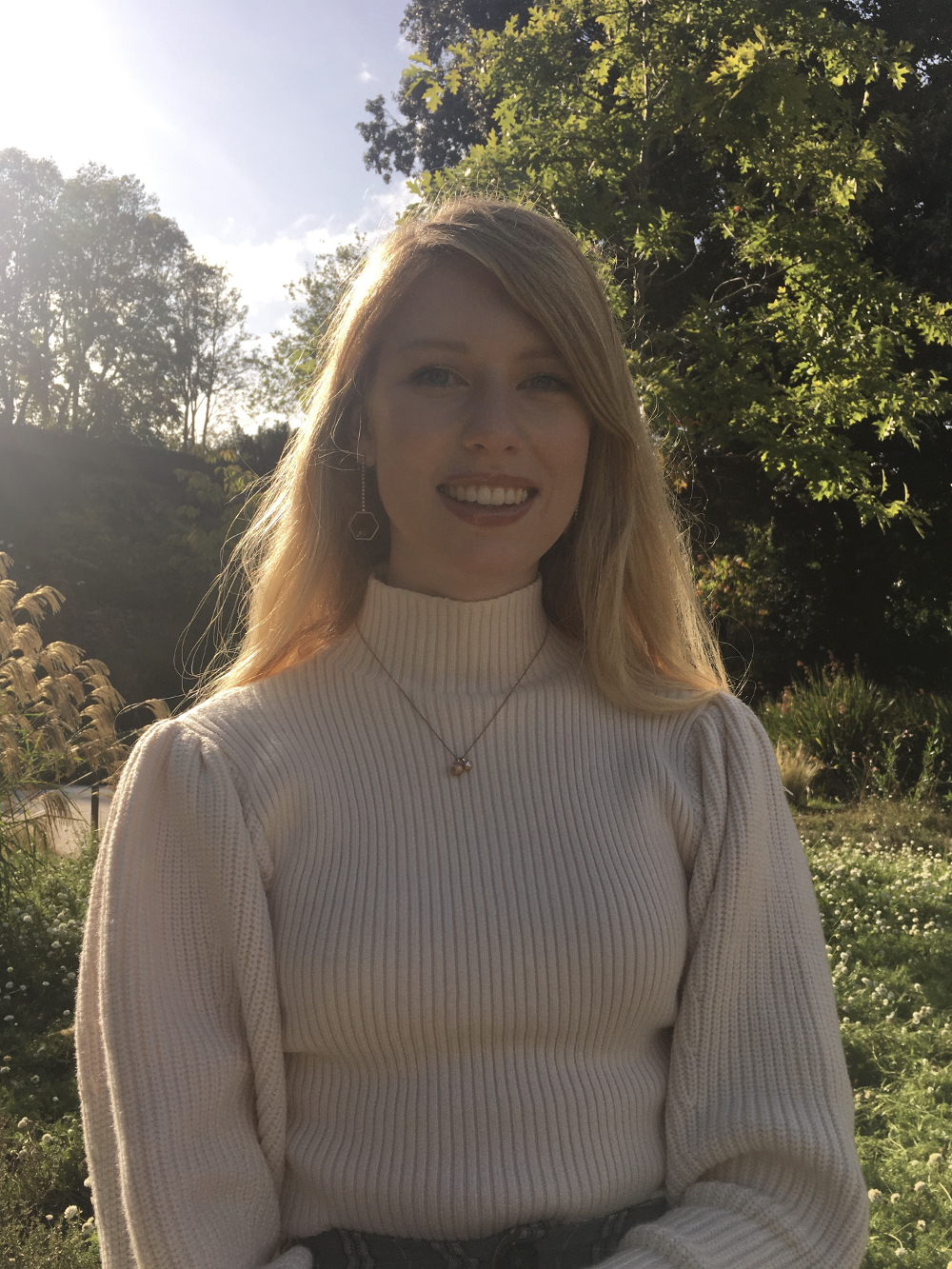
Marie Clara Michel
My name is Marie Clara Michel and I graduated with a first-class honours BSc Chemistry from University College Cork in 2020. During the summer of my third-year undergraduate degree, I completed an internship at the Tyndall National Institute where I generated computational predictions for doping and modifying Titanium Dioxide. I have a keen interest in organic chemistry and my final year thesis project involved synthesising signal molecules used by bacteria to communicate, called quorum sensing. The goal was to create molecules similar to the organism’s signalling molecules in order to disrupt communication between the bacteria and thereby reduce potential harm caused by such bacteria. I have also been awarded an Irish Research Council Postgraduate Scholarship for my PhD research.
Where you are studying and why did you chose that centre?
I am studying at University College Cork, which is where I completed my undergraduate studies in Chemistry. I met my PhD supervisors, Dr Peter Byrne and Dr Gerard McGlacken, as they supervised my final year project. They both have an impressive research track record and are hands-on supervisors and already co-supervise several PhD students. In addition, the School of Chemistry in UCC is one of the largest and most research-active in Ireland with strong links to the pharmaceutical industry. I will also have access to state-of-the-art organic chemistry infrastructure.
Thanks to the NUI Travelling Doctoral Scholarship, I will travel to the University of Cologne, Germany as part of my PhD studies. Under the guidance of Dr Martin Breugst, a leading expert in the field of computational chemistry in the area of organic chemistry, I will get to use the university’s supercomputer. This will be fantastic as it will provide me with the opportunity to improve the computational skills that I already acquired while an intern in the Tyndall Institute and use the outcomes it to advance my bench-based experimental research.
What is your current research project?
My project is based on developing a general method to create chiral molecules. Chiral compounds are asymmetric in nature with 80% of new drug candidates in development being chiral. Current methods for synthesising chiral compounds such as kinetic resolution involve disposing of at least 50% of the chiral product, which is wasteful. I plan to develop a method which uses less materials and without wasting any product, so that it will be a greener method. I will use a combination of ground-breaking new experimental methodology and high-level computational modelling to develop this approach.
Why did you apply for the NUI Travelling Doctoral Studentships in the Sciences 2020?
"Thanks to the NUI Travelling Doctoral
Scholarship, I will travel to the University of
Cologne, Germany as part of my PhD studies.
Under the guidance of Dr Martin Breugst,
a leading expert in the field of computational
chemistry in the area of organic chemistry,
I will get to use the university’s supercomputer."
I applied for a Travelling Doctoral Studentship to have the opportunity to work in a leading computational chemistry lab in Germany and acquire new skills and progress my project computationally. Computational chemistry in the area of organic chemistry is not widely studied in Ireland, so the opportunity to learn directly from Dr Breugst, a leading expert in the field, will have a huge impact not only on my research, but also to fellow researchers in UCC as I will be bringing back new skills to pass on to future students.
The impact this oversees research will have on my project will be significant. At the early stages of my research, I will be able to more quickly study and screen organocatalysts which show potential with regards to developing a general method for achiral compounds. This will reduce the time required to obtain meaningful experimental results and will also reduce the expenses for lab materials which can be prohibitive.
What you are looking forward to over the next few years of your research?
I am looking forward to beginning my research career and contributing to the chemistry community. The opportunity to take my research to Cologne is something I am very excited about, to not only learn a new skill which will stand to me as a researcher, but to also immerse myself in the German culture and research.






















